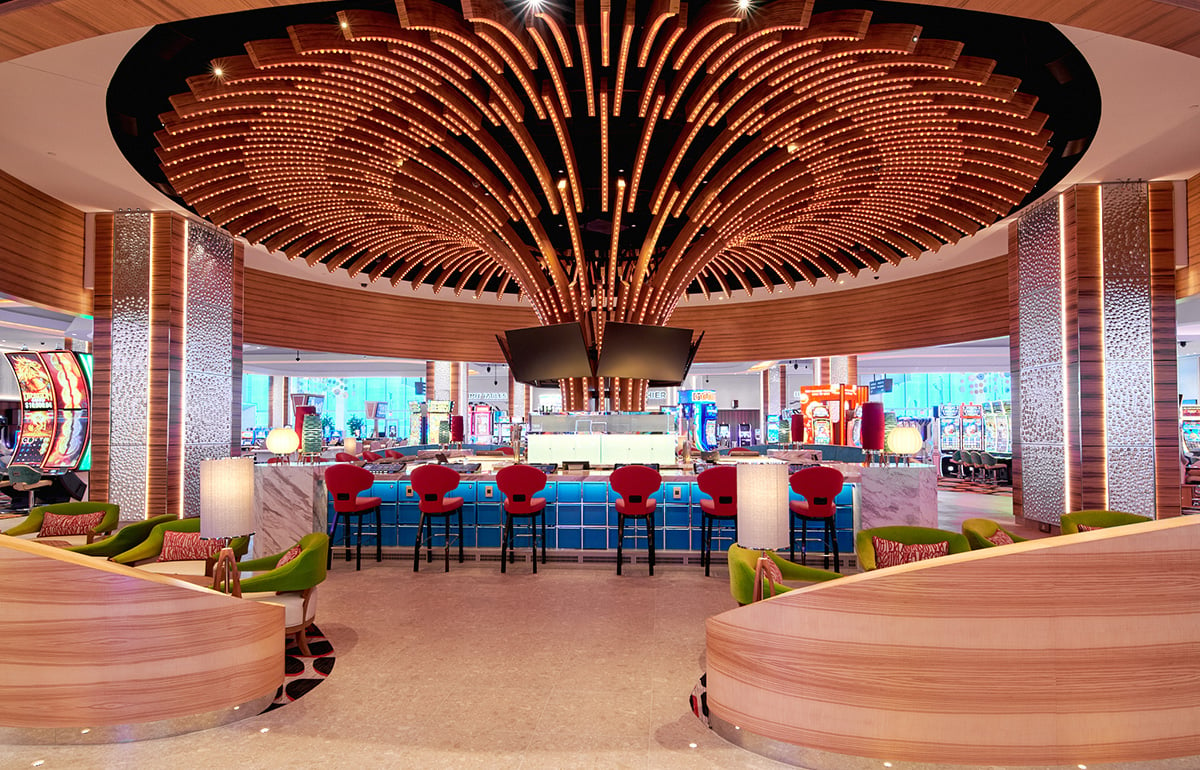Gambling games have long been a fascinating entertainment option, drawing numerous of players from different cultures around the globe. From the opulent casinos of Las Vegas to the bustling gambling halls of the Chinese gambling capital, these games serve as a bridge that unites people across a variety of backgrounds. The allure of chance, strategy, and gambling entices not only those hoping to strike it rich but also those seeking a sense of community.
The significance of casino games extends far beyond the gaming floor. They often represent the cultural standards and traditions of the societies in which they flourish. https://bet888.solutions/ Games such as poker, pontoon, and the spinning wheel have integrated into the tapestry of popular culture, influencing various aspects from movies to fashion. As we explore this captivating intersection of luck and culture, we can gain insights into how casino games shape and are shaped by the surrounding world.
Historical Evolution of Gambling Games
The beginnings of casino activities can be traced back to historical cultures, where gambling in multiple forms was extensively performed. In Ancient China, around two thousand three hundred years before Christ, a form of lottery known as Keno was well-known, while in old the Roman Empire, soldiers would regularly gamble on the results of their matches. The concept of using luck for entertainment and gain developed over the centuries, leading to the establishment of more formal activities. By the final Middle Ages, betting houses initiated to surface in European nations, particularly in Italy, which presented early forms of well-liked games still practiced today.
As betting increased popularity in European regions, the 17th and 18th centuries saw the appearance of gambling establishments as specialized venues for gaming. The earliest official gaming venue, the Ridotto, was set up in the city of Venice in sixteen thirty-eight, featuring games like the game of Baccarat and the game Faro. This time marked a crucial pivoting point, as gaming venues commenced to draw not just the high society but also the burgeoning middle-tier society. The refinement of games grew, leading to the development of new guidelines and versions that enhanced the experience of players.
In the 19th century, the industrial age and transformations in societal conventions additionally changed the environment of gambling activities. The arrival of the game of roulette and contemporary slot machines pulled in a broader crowd, and casinos became seen as legitimate forms of entertainment. This period witnessed the globalization of gambling, as gambling houses expanded from the continent to the Western Hemisphere, culminating in the establishment of the famous Strip of Las Vegas in the twentieth century. The progress of gaming games has persisted into the modern era, including new technologies and online platforms, allowing them open to a universal population.
### Cultural Significance in Different Communities
Casino games have deep-rooted social importance across numerous societies throughout the planet. Places like Las Vegas, the very fabric of the city is woven around gambling establishments, where gambling is not just a recreational activity but a key aspect of leisure and community interaction. The bright lights and dynamic atmosphere attract a vast audience, showcasing how casino games can influence local economies and cultural uniqueness. This environment transforms the notion of recreation into an immersive encounter that shapes fashion, music, and even film.
On the other hand, some communities approach gambling with greater care, considering it through the lens of ethical considerations and heritage. For example, in many Oriental communities, games like Mahjong and Pai Gow are rich with history and have significant social relevance. These games are often played during gatherings and occasions, fostering community bonds and strengthening familial ties. The act of playing these games goes beyond mere amusement, reflecting values such as deference to seniors and the importance of communal fun.
Meanwhile, in European countries such as Monaco and Rome, casino games serve as symbols of luxury and sophistication. The stylish atmosphere of these locations attracts both travelers and native inhabitants, reinforcing a sense of distinction and rarity. The art of Texas Hold’em and the strategic features of games like banker’s game are celebrated, molding interpersonal interactions and establishing an allure that enthralls a diverse audience. This emphasizes how games of chance can simultaneously reflect and mold cultural perspectives towards risk, benefit, and community interaction.
Financial Influence and Travel Industry
Gambling activities play a significant role in the economic landscape of many areas, particularly those that depend significantly on tourism. The revenue generated from casino operations fuels local financial systems, creating employment opportunities not only within the casinos themselves but also in related sectors such as hotel management, restaurant services, and entertainment. This influx of tourists, drawn by the attraction of games and the overall gaming environment, stimulates spending across multiple local enterprises, contributing to the economic health of the area.
The presence of casinos often leads to the development of facilities, including lodging, public transit, and recreational facilities. These developments are essential in improving the overall tourist experience, making locations more attractive to visitors. Additionally, many casinos invest in local communities through support of activities and charitable initiatives, further embedding themselves into the social fabric of the locality. Such investment not only supports economic growth but also cultivates a positive reputation of the gambling sector.
Furthermore, the worldwide appeal of casino games drives tourism competition, with locations vying to attract players from across the globe. Iconic locations like Las Vegas and Macau have become synonymous with casino culture, drawing millions annually. This advantage encourages innovation and diversification within the gaming industry, influencing developments in leisure and accommodation that extend beyond their borders. The ripple effects of this tourism extend wide, impacting local financial health and cultural exchanges on a global scale.
